
1 Cape Blanco stonecrop
SEDUM SPATHULIFOLIUM, ZONES 5 TO 9
Cape Blanco's luminous, silver-blue foliage lights up any combination in the garden or container arrangements. This is a cultivar of a native species, offering up tiny yellow flowers in summer. As a ground cover, it'll stretch up to 2 feet.
Why we love it:
Truly a standout with its coloration, the shimmery leaves can play checkers in a landscape with black mondo grass (Ophiopogon planiscapus 'Nigrescens').
2 Petite Bicolor crassula
CRASSULA, ZONES 9 TO 11
With the tiniest of leaves, this charming option shines in a mixed container or on its own. Move it indoors in winter and grow as a houseplant where not hardy. Watch for bees and butterflies to stop by in droves during summer and early fall when star-shaped pink flowers appear.
Why we love it:
Often referred to as Little Missy sedum, this pick's leaves are edged in cream and flushed pink.
WARM AND DRY Like other succulents, sedums thrive in poor soil and can even withstand drought once established. For most, the preferred growing conditions are gravelly, well-draining soil in full sun. Plant where rain or moisture won't puddle.
3 Weihenstephaner Gold orange stonecrop
PHEDIMUS KAMTSCHATICUM VAR. FLORIFERUM, ZONES 3 TO 8
This plant sports 6-inch-tall olive green foliage that beautifully complements its pink stems and wildlifefriendly yellow flowers. Its trailing habit, up to 16 inches, makes it perfect to use in hanging baskets or as a ground cover. It also tolerates deer and drought.
Why we love it: Abundant blooms appear from June to August, then deliver a bonus of tiny reddish fruit.
4 Evergreen orpine
Bu hikaye Birds & Blooms dergisinin August/September 2023 sayısından alınmıştır.
Start your 7-day Magzter GOLD free trial to access thousands of curated premium stories, and 9,000+ magazines and newspapers.
Already a subscriber ? Giriş Yap
Bu hikaye Birds & Blooms dergisinin August/September 2023 sayısından alınmıştır.
Start your 7-day Magzter GOLD free trial to access thousands of curated premium stories, and 9,000+ magazines and newspapers.
Already a subscriber? Giriş Yap
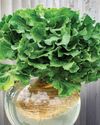
Basics of Hydroponics
Use these top tips and plant picks to have a successful soil-free garden
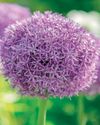
Rooted in Resilience
These hardy perennials will thrive in most zones
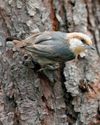
Social and Supportive
Brown-headed nuthatches take a helpful approach to raising their young
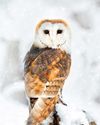
All About Owl Pellets
And why you should give a hoot about them
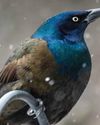
Ask the Experts
Advice from our pros about houseplants, bird feeding and more
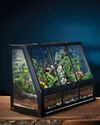
BRING THE OUTDOORS IN
Making a terrarium is about as close as you can get to a Zen DIY project. Once you have gathered the proper materials and squared away your plant selections, it's as simple as layering it all together and watching your mini ecosystem thrive. Here, I'll walk you through my foolproof process and cover all the required elements for good filtration, healthy soil, strong root growth and resistance against fungus and disease.
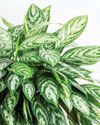
GROW THIS. NOT THAT
Six easy-to-grow houseplants—and six that may not be the right choice for you

Winter MAGIC
Forecasts may be frigid, but grab your binoculars because birding opportunities are still incredible
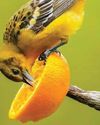
Sense or Nonsense? - Why some birds can taste and smell - but others can't
Does a porcelain berry taste like a blueberry to a gray catbird? Does a block of lard smell like frying bacon to a northern flicker? The short answer is no. While some avian species do have a well-adapted sense of taste or smell, they can't distinguish between flavors and odors the way humans can. They're not picking up every ingredient in the suet you put out, says José Ramírez-Garofalo, an ornithology researcher at Rutgers University in New Jersey and the director of Freshkills Biological Station in Staten Island, New York.
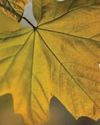
Maple Mania - Amazing facts about this fall foliage mainstay
Amazing facts about this fall foliage mainstay